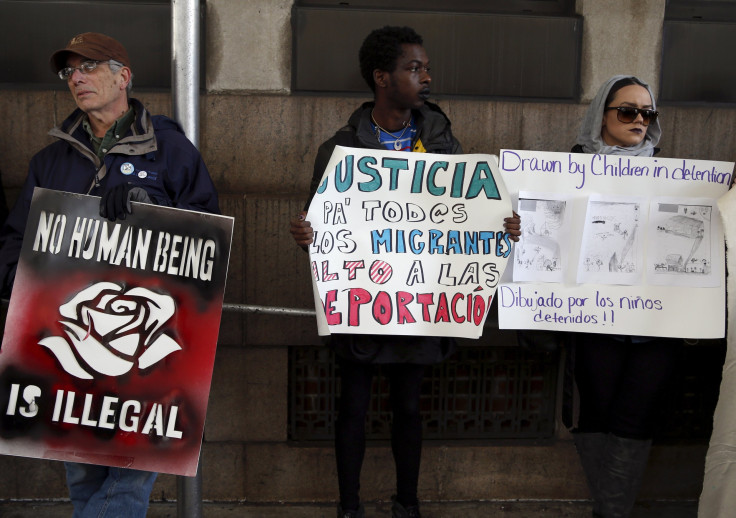Does Immigration Help The Economy? Five Facts About Undocumented Workers In The US

President-elect Donald Trump said he would deport or imprison up to three million undocumented immigrants once he takes office in January. Trump's proposal specifically targets undocumented individuals with criminal records, however, his hardline rhetoric against immigration has sparked concern in a country where 11 million undocumented immigrants contribute to the economy.
The controversial topic was a key subject of debate during the presidential election, with Trump's successful campaign claiming that undocumented immigrants hurt the economy by lowering wages and taking jobs away from citizens. But is he right? Here's what we know:
1. Immigration Does Take Away Jobs And Lower Wages For Some. In Trump's defense, a certain demographic of U.S. citizens have been economically beset by undocumented workers. While the influx of immigrant workers affects the economy as a whole, low-skill, high school dropouts have been most adversely affected because most incoming immigrants directly compete with them in the job market. Wages for this group of U.S.-born workers without high school diplomas has dropped about six percent, according to a 2013 report by Harvard economist George J. Borjas. It may be no surprise that this demographic of U.S. voters widely supported Trump in the election.
2. Immigration Improves The Economy As A Whole. Borjas has also said that the average U.S. citizen's wealth has increased by one percent thanks to illegal immigration. In 2006, President George W. Bush received an open letter signed by around 500 economists (including five Nobel laureates). “While a small percentage of native-born Americans may be harmed by immigration, vastly more Americans benefit from the contributions that immigrants make to our economy, including lower consumer prices,” it read. Immigrants expanded the U.S. workforce by about 47 percent between 1994 and 2014, according to the Organization for Economic Cooperation and Development.
3. Certain Industries Are Dependent On Undocumented Workers. Some sectors of the economy have widely benefitted from an unauthorized workforce. About half of all crops workers in the U.S. were undocumented, according to the Department of Agriculture. A policy of mass deportation would have devastating effects on the industry and would likely result in a significant increase on the price of essential goods such as fruits and vegetables. The construction and service industries also rely on high numbers of undocumented workers.
4. Mass Deportation Would Be Extremely Costly. Part of the debate on immigration involves the cost of undocumented workers. Borjas estimates a $50 billion overall increase in the net wealth of citizens thanks to the "immigration surplus" in the workforce actually offsets a $50 billion projected fiscal loss reached by comparing what these immigrants will pay into the system versus what they will take out. In other words, the economy virtually balances itself out. A policy of mass deportation, however, would cost the federal government at least $400 billion and lower the country's GDP by about $1 trillion, according to the free-market think tank American Action Forum.
5. Immigration Can Work For Everyone. Rather than worrying about the amount of immigrants we admit, Borjas emphasizes the need to focus on lessening their economic impact on native-born workers. He suggests we tax certain industries that hire large numbers of immigrant workers and use the revenue to provide for U.S. workers that have lost out. It is also important to remember that the benefits of immigration are not only represented in fiscal policy, but in social contribution. Immigration has caused a "brain gain" in the U.S., with incoming individuals bringing new ideas and contributing significantly to the cultural fabric of the country, numerous studies show.
© Copyright IBTimes 2025. All rights reserved.






















